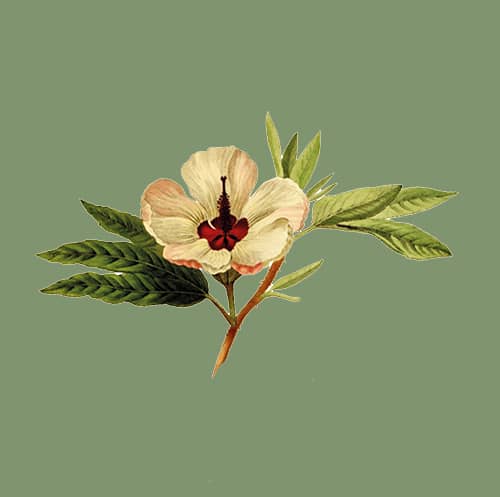The daphne is highly fragrant and in spring is blessed with an array of clusters with tiny flowers, usually in pinks or whites. Also known by their Greek name ‘Laurel’, the daphne is an excellent plant for planting designers who are looking to bring colour and a cloud of unexpectedly luxurious scent to the garden in winter and spring.
Many varieties also flower non-stop from spring right through to autumn and are one of the most fragrant plants in the UK. Daphne is a species of shrub with upright habit growing to 1.5 metres. The leaves have clusters of flowers towards the end of the stem with smooth and hairy surfaces.
When and where to plant:
Most daphnes are evergreens, meaning that they keep their leaves all year round, or semi-evergreen, where they lose some of their leaves, over winter in cold areas. Often a compact and slow-growing plant which needs little maintenance all year round, there are varieties that enjoy sun or shade, so there are choices to suit most locations.
We recommend planting them somewhere you are able to appreciate their full scent, so we’ll choose locations such as next to the front and back doors, gates, patios, paths or near to seating areas. Planting a couple of varieties with differing flowering times, helps to maximise the pleasure you’ll get from enjoying their fragrance over an extended period. Try daphne caucasica, Daphne x burkwoodii ‘Astrid’ and the daphne cneorum.
Depending on the variety, daphnes will suit both formal and informal gardens, traditional and contemporary. Most daphnes are compact and slow-growing which are ideal for mixed borders, shrub borders and smaller gardens.
Tolerance and resistance:
Most daphnes are deep-rooted, so don’t generally grow well in containers, but the smaller alpine daphne (D. arbuscula) will be fine as long as you use deep pots or containers.
Planting them in raised beds may be more beneficial for them as it gives them better drainage. Some varieties of daphne will cope with being in heavy soil, but we’d advise using plenty of compost or well-rotted manure to help them grow into the picture of health.
Before buying and planting do your research online or study the pages of your gardening books to make sure you have, or can create, the best conditions for them to grow. Once planted, daphnes don’t like to be moved and they should be fertilised twice a year using a balanced granular fertiliser. The best times to do this are February to March and July.

Curious cuttings:
As well as being much-loved for their beautiful scent, daphne’s are well known for their brightly coloured berries, but did you know that there are 2 varieties that are used to make paper? Daphne bholua and Daphne papyracea, are also known as ‘lokta’ in their native Nepal and Bhutan and are sustainably harvested for paper production.
Many daphne varieties are grown for ornamental plants and smaller varieties can even be used in rock gardens. For best results, we recommend that they are grown in well-drained, but slightly moisture-retentive soil. Most varieties of daphne will prefer a sunny spot in the garden, though some have evolved as woodland plants like the D. mezereum and D. pontica and so will be very happy in dappled sunshine or slightly shady spots.
Wildlife:
These evergreen shrubs provide great shelter for a wide range of wildlife, providing ideal nesting sites for birds early in the season. However, when planting please bear in mind that all parts of the plant are toxic, especially the berries, so best to keep them to places where little hands and snuffling snouts can’t reach.
Colour and scent are both so integral to creating a gorgeous garden and the daphne is one flowering plant that can provide both in abundance.
With so much to offer at this time of year, a daphne surely makes a wonderful and lasting Mothers Day gift and we’re giving you the chance to win one of our favourite varieties – Jacqueline Postill – to give to your Mum. Awarded an RHS Award of Garden Merit, it’s a real gem of a shrub. It has a sweetly uplifting, heady fragrance rounded off by just a touch of cloves and clusters of gorgeous pink flowers. It requires minimal pruning and has been known to bloom from December in exceptionally mild winters. It was named after the wife of Alan Postill, who was the propagator who raised this daphne at Hillier’s nursery in 1982.
Join us over on Instagram to enter our great Mothers Day giveaway. The lucky winner will receive a hand-selected Daphne ‘Jacqueline Postill’ in time to take to their Mum this Mothering Sunday.
Discover more plants that are glorious in the garden and outdoor living inspiration by browsing our stories.








